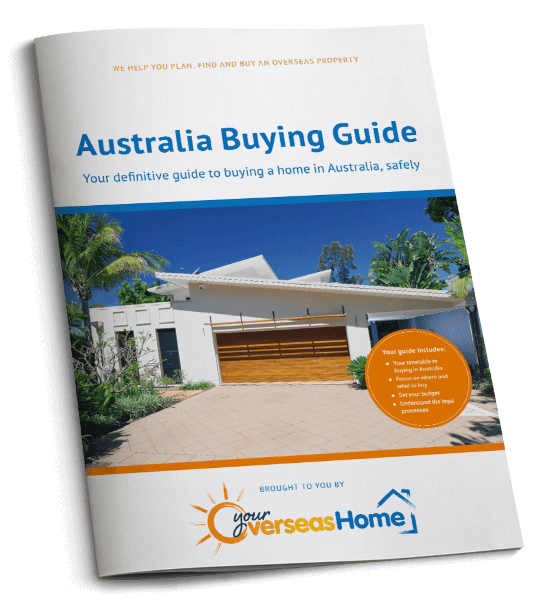Maintaining your finances after you move
The financial considerations of an international move don’t just stop the minute the property is purchased. Here we outline the key financial considerations for after you purchase.
There are a number of important financial considerations you’ll have to plan for when moving to Australia, both before and after your property purchase is complete.
Tax planning
One of the first things you need to do before leaving the UK is to inform HMRC of your departure. Finding out any tax implications that may affect your estate in the UK while living in Australia is important. Consulting a professional financial adviser is the best way to determine specific steps to tax planning for your given circumstances.
One of the first things you need to do before leaving the UK is to inform HMRC of your departure.
If you decide to continue paying into your UK pension plan while in Australia you may find that you’ll receive tax relief. When moving to Australia and bringing your UK pension with you, either in a lump sum or through regular payments, be aware of the foreign tax restrictions that will apply to this income.
Determining your residency in the UK is important for proper tax planning. You can do this by taking the Statutory Residence Test. Make sure you note the difference between residency and domicile status in the UK, as these can have specific tax implications for you, especially when dealing the income and inheritance tax.
If you plan on earning an income in Australia, or renting out your property, you should consult a Financial Adviser and seek advice on Australian tax law and how it applies to you.
Claiming your pension
If you are eligible for a UK pension, you will obviously want to consider the best way to claim this when you are in Australia. If you wish to keep your pension in your UK bank account, setting up regular payments to your Australian account is a good way to ensure a steady stream of money is available. Working with a payment specialist is the easiest and most effective way of setting up a payment system while in Australia. By setting up a Regular Payment Plan with Smart Currency Exchange you will receive your pension in regular payments at pre-agreed exchange rates and for no service fees. It doesn’t get any easier than this.

Working with a currency specialist will save you worrying about getting money to Australia when you need it.
Ensure you consider the taxes that may be placed on your pension income. Australia considers your UK pension foreign income, meaning you may be taxed on it. Tax treaties between Australia and the UK have been signed to avoid foreign income being taxed by both countries. You can learn more about this on the Australian Tax Office website.
Some retirees and retirement savers opt to invest their pension in a Qualifying Recognised Overseas Pension Scheme (QROPS) or a Self Invested Personal Pension. It is always best to consult a professional financial adviser when making decisions about your pension and retirement savings.
Living costs
Have you considered how much money you will need to live in Australia? This will depend on many factors such as where you’ll be living, who you’ll be supporting and the standard of living that you expect. It is important to have a realistic expectation of living costs and budget accordingly.
Each year the Australia Property Guide conducts a useful Cost of Living survey comparing the cost of life in the UK and Australia.
Letting your property
If you intend to purchase property and let or rent it to long-term tenants or holiday-makers, you should be aware of certain restrictions and tax implications. When buying real estate in Australia foreign buyers are only able to purchase established dwellings if they intend to live their themselves; therefore, until you have obtained permanent residency or citizenship status in Australia, you are unable to buy an established dwelling. Buying and renting out new-builds does not have the same restrictions.
When buying real estate in Australia foreign buyers are only able to purchase established dwellings if they intend to live their themselves
If you decide to let your Australian property you can choose to do so through a property management company (for a fee), or do it yourself either locally or via websites like Airbnb. The advantages of letting through a property management service is they take responsibility for finding suitable tenants, and will address any maintenance or emergency issues in your home. Websites like Airbnb may provide better returns, but create a lot more work for you the home owner.
Due to the high cost of homes in Australia, rental yields are generally low compared to more affordable places. Ensuring your property is adequately insured for home and contents is important, and you may want to consider landlord or renter’s insurance.
It is important to beware of tax implications that could be imposed on your rental property. The Australia Tax Office website discusses certain expenses that can be claimed as tax deductions, and declarations needed regarding rental-related income on your tax return. It’s best to consult with a financial adviser to get advice on income received from a rental property.

The Australia Buying Guide takes you through each stage of the property buying process, with practical recommendations from our experts who have been through the process themselves. The guide will help you to:

